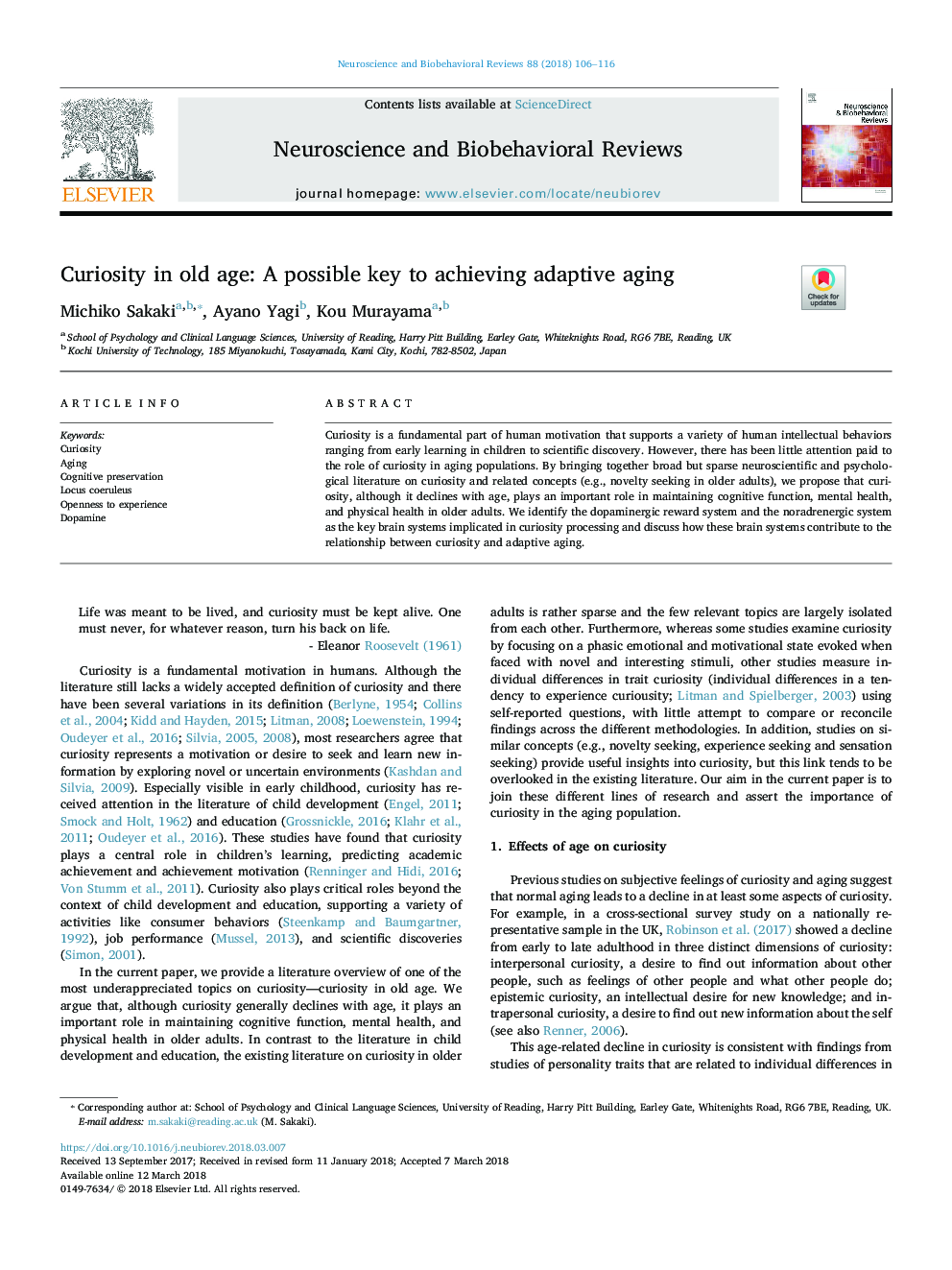| Article ID | Journal | Published Year | Pages | File Type |
|---|---|---|---|---|
| 7301874 | Neuroscience & Biobehavioral Reviews | 2018 | 11 Pages |
Abstract
Curiosity is a fundamental part of human motivation that supports a variety of human intellectual behaviors ranging from early learning in children to scientific discovery. However, there has been little attention paid to the role of curiosity in aging populations. By bringing together broad but sparse neuroscientific and psychological literature on curiosity and related concepts (e.g., novelty seeking in older adults), we propose that curiosity, although it declines with age, plays an important role in maintaining cognitive function, mental health, and physical health in older adults. We identify the dopaminergic reward system and the noradrenergic system as the key brain systems implicated in curiosity processing and discuss how these brain systems contribute to the relationship between curiosity and adaptive aging.
Related Topics
Life Sciences
Neuroscience
Behavioral Neuroscience
Authors
Michiko Sakaki, Ayano Yagi, Kou Murayama,
